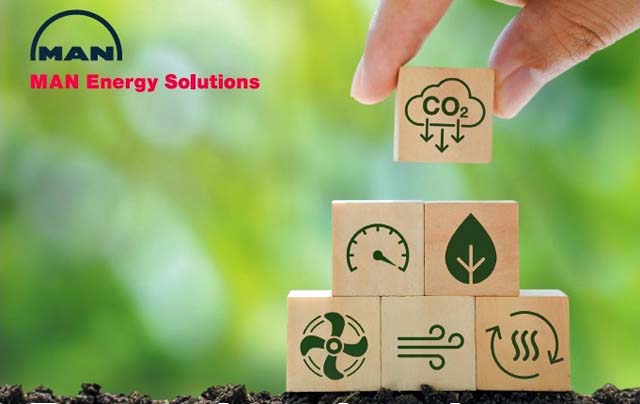MAN Energy Solutions has released a new paper entitled ‘Decarbonization technologies in merchant shipping’ to coincide with COP28, the 2023 UN Climate Change Conference at Expo City, Dubai, .
The publication evaluates energy-saving devices for GHG emissions compliance and propulsion technologies for abatement potential and cost.
Dr Uwe Lauber, CEO MAN Energy Solutions said: “For several years now, we have advocated for tougher regulations and have pushed the IMO to deliver a meaningful proposal. This they have now delivered at the most recent Marine Environment Protection Committee. As a result, these tightened regulations are now aligned with Article 2 from the Paris Climate Agreement and its pathway to net-zero shipping, which gives us solid parameters within which we can work. Now we can turn our focus towards the implementation of decarbonising technology. The maritime energy transition is in full swing and the maritime sector is currently scaling and implementing decarbonisation technologies. With this paper, we show how cost-effectively we can implement different propulsion technologies for the merchant fleet to achieve compliance with the new regulations.”
Key takeaways from the paper include:
- ammonia and methanol engines are among the most cost-effective options for decarbonisation;
- fuel cells offer high greenhouse-gas abatement potential but at higher cost and come with a low technology-readiness in terms of merchant ship implementation;
- onboard carbon capture could be a temporary compliance measure and, as such, insufficient for achieving net-zero emissions by 2050;
- dual-fuel engines combined with energy-saving technologies should be considered for newbuildings, starting immediately;
- existing ships will require dual-fuel engine conversions, advanced bio-fuels with low well-to-wake emissions, or energy-efficiency retrofits depending on age and operational patterns.



